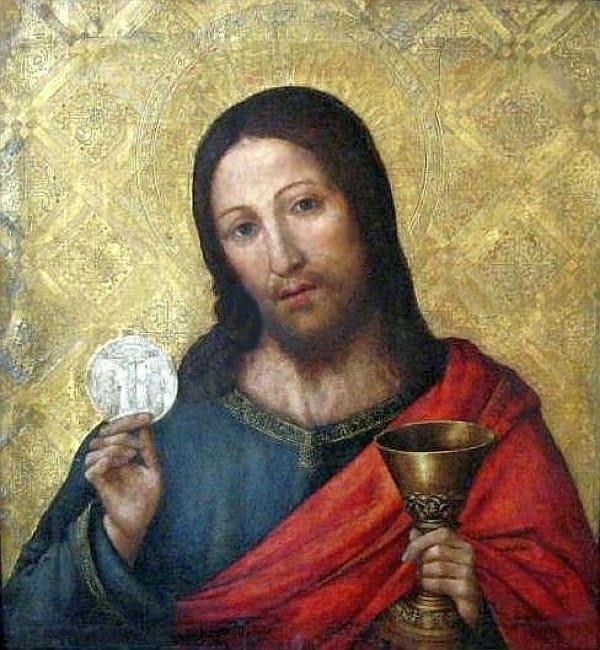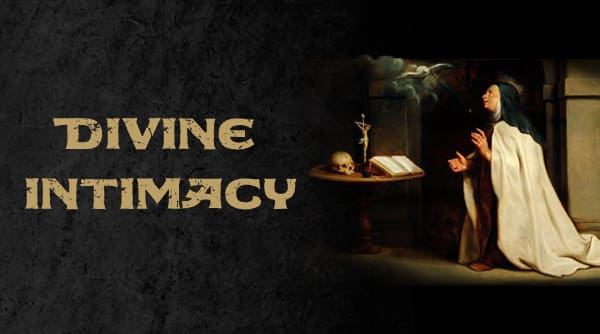The Invitation to the Banquet

Presence of God – O Jesus, grant that I may always answer Your invitation and participate worthily in Your banquet.
MEDITATION
… Luke 14:16-24 fits in perfectly with the [Solemnity] of Corpus Christi. “A certain man made a great supper, and invited many.” The man who makes the supper is God; the great supper is His kingdom where souls will find full abundance of spiritual blessings while on earth, and eternal happiness in the next life. This is the real meaning of the parable, but we can also interpret it more specifically, seeing in the supper and in the man who prepares it a figure of the Eucharistic banquet and of Jesus, inviting men to partake of His Flesh and Blood. “The table of the Lord is set for us,” sings the Church, “Wisdom [the Incarnate Word] has prepared the wine and laid the table” (Roman Breviary). Jesus Himself, when announcing the Eucharist, addressed His invitation to all: “I am the Bread of life! He that cometh to Me shall not hunger, and he that believeth in Me shall never thirst…. Your fathers did eat manna in the desert, and are dead. This is the bread which cometh down from heaven; that if any man eat of it, he may not die” (John 6:35, 49, 50). Jesus does not limit Himself, like other men, to preparing the table for a supper, inviting many, and serving delicious food; His is an unheard-of procedure, which no man, however rich and powerful he might be, could ever imitate. Jesus offers Himself as Food. St. John Chrysostom said to those who wanted to see Christ in the Eucharist with their bodily eyes, “Behold, you do see Him; you touch Him, you eat Him. You would like to see His garments; He not only permits you to see Him, but also to eat Him, to touch Him, and to receive Him into your heart…. He whom the angels look upon with fear, and dare not gaze upon steadfastly because of His dazzling splendor, becomes our Food; we are united to Him, and are made one body and one flesh with Christ” (Roman Breviary).
COLLOQUY
“O Sacrament of mercy! O seal of unity! O bond of charity! He who wishes to live, finds the home and the dwelling where he can live. O Lord, I approach Your table with faith, there to become incorporated in You in order to be vivified by You.
“Grant, O Lord, that I may be inebriated with the riches of Your house, and let me drink from the torrent of Your delights. Since You are the fountain of life, there with You, and not elsewhere, is the source of my life. I will drink of it in order to live; I will not rely upon myself and be lost; I will not be satisfied with what I have and die of thirst; I will approach the source of the spring where the water never fails.
“I will do away with vain excuses and draw near to the banquet which will enrich me interiorly. Let me not become haughty through pride, and do not permit illicit curiosity to draw me away from You! May sensual pleasure never prevent me from enjoying spiritual joy!
“Permit me to approach You and be refreshed. Allow me to come, a beggar, weak, crippled, and blind, for the wealthy and strong scorn Your banquet; they consider themselves on the right path and believe their sight is sure. They are presumptuous, and so much the more incurable the prouder they are. Although a beggar, I come to You because You invite me; You, who being rich became poor for me, so that Your poverty would make me rich. Weak as I am, I shall draw near, for it is not the healthy who need the physician, but the sick. I shall approach you like a cripple and say: ‘set my feet in Your paths.’ I shall come like a blind person and say: ‘Give sight to my eyes, that I may never sleep the sleep of death’” (St. Augustine).
+
 Note from Dan: This post on the Invitation to the Banquet is provided courtesy of Baronius Press and contains one of two meditations for the day. If you would like to get the full meditation from one of the best daily meditation works ever compiled, you can learn more here: Divine Intimacy. Please honor those who support us by purchasing and promoting their products.
Note from Dan: This post on the Invitation to the Banquet is provided courtesy of Baronius Press and contains one of two meditations for the day. If you would like to get the full meditation from one of the best daily meditation works ever compiled, you can learn more here: Divine Intimacy. Please honor those who support us by purchasing and promoting their products.
Art for this post on the Invitation to the Banquet: Partial Restoration of Christ with the Host, Paolo da San Leocadio, fourth quarter of 15th century, PD-US author’s life plus 100 years or less, Wikimedia Commons. Father Gabriel of St. Mary Magdalen, mirror from open source material.




